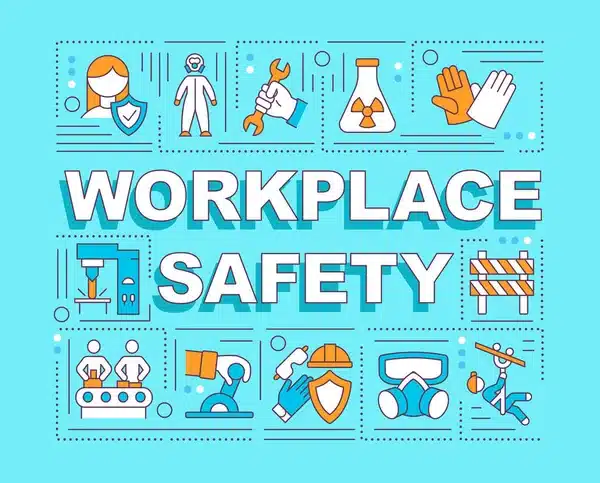In today’s fast-paced and ever-evolving work environment, prioritizing Health, Safety, and Environmental (HSE) standards is paramount.
Companies across industries are continually seeking innovative ways to enhance workplace safety while also promoting sustainability. From cutting-edge technology to novel strategies, HSE innovations are transforming how organizations approach these crucial aspects of their operations.
Technological Advancements in Safety
 Embracing technology has revolutionized workplace safety. From wearable devices that monitor vital signs to real-time tracking systems, companies are leveraging advancements like never before.
Embracing technology has revolutionized workplace safety. From wearable devices that monitor vital signs to real-time tracking systems, companies are leveraging advancements like never before.
For instance, IoT-enabled sensors can detect hazardous conditions, providing timely alerts to workers and supervisors, thus preventing accidents before they occur.
Moreover, drones equipped with cameras and sensors offer unparalleled surveillance of large industrial sites, ensuring compliance with safety protocols and identifying potential risks.
Data Analytics for Risk Assessment
Data analytics is another game-changer in HSE management. Organizations can identify patterns, trends, and potential risks by analyzing vast amounts of data collected from various sources more effectively.
Predictive analytics models enable proactive risk mitigation strategies, allowing companies to address potential safety hazards before they escalate.
Furthermore, data-driven insights facilitate continuous improvement by identifying areas for optimization and resource allocation, thereby enhancing overall safety performance.
Employee Training and Engagement

Additionally, gamification elements can make learning more engaging and effective, encouraging active participation and knowledge retention.
Furthermore, empowering employees to take ownership of safety initiatives through feedback mechanisms and recognition programs fosters a sense of responsibility and accountability. Utilizing plasters from Seton.co.uk guarantees top-notch first-aid supplies, reinforcing workplace safety protocols with trusted, reliable products.
Sustainable Practices for Environmental Stewardship
While focusing on safety, organizations are also increasingly integrating sustainability into their HSE initiatives. Implementing eco-friendly practices reduces environmental impact and enhances overall operational efficiency.
For example, transitioning to renewable energy sources and optimizing resource utilization minimizes carbon footprint and conserves natural resources. Furthermore, adopting circular economy principles, such as recycling and waste reduction, promotes sustainability throughout the supply chain, contributing to long-term environmental stewardship.
Collaborative Partnerships and Industry Standards

Moreover, adhering to industry standards and certifications ensures compliance with regulatory requirements and benchmarks performance against peers. Standardized frameworks also facilitate interoperability and compatibility, enabling seamless integration of HSE technologies and practices.
Conclusion
HSE innovations play a pivotal role in enhancing workplace safety and sustainability. Organizations can create safer, healthier, more environmentally responsible work environments by embracing technological advancements, leveraging data analytics, investing in employee training, adopting sustainable practices, and fostering collaborative partnerships.
As businesses continue to prioritize HSE initiatives, the journey towards achieving optimal safety and sustainability outcomes remains a dynamic and evolving process, driven by innovation and continuous improvement.

